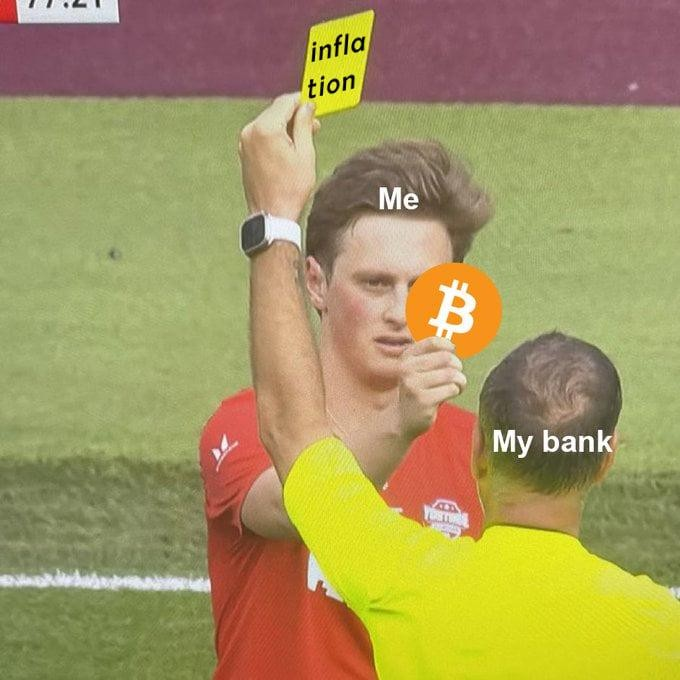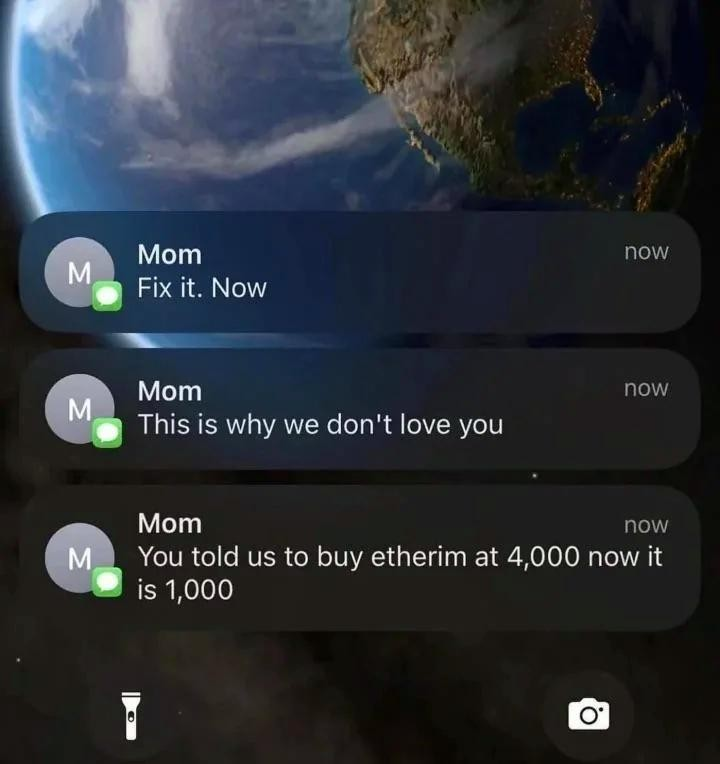and the distribution of digital products.
In The Beginning
Before blockchain, there was darkness. Satoshi only had a code. Deep in the 2008 financial "crysis," a spark was lit, and the 21st-century gold rush began, though slow but with some progress.
\ Satoshi did not want fame; he just wanted his vision to become reality. He disappeared, and his original writings are worshipped, leaving behind a legacy of innovation. People are always rereading his white paper and forum posts, trying to figure out Satoshi's true vision. People seek to know his philosophy and want to live by his values.
Like AbrahamLike Abraham (the traditional founder of the ancient Hebrew nation), Satoshi broke free from the traditional systems—the “idols” of central banks and government-backed currencies. He introduced a new way of thinking: a trustworthy, decentralized system that didn’t need any central authority, just like Abraham’s invisible God didn’t need physical idols.
\ Satoshi, in his way, “circumcised” the financial world, removing the unnecessary intermediaries and creating a pure peer-to-peer currency—Bitcoin. This act, like Abraham’s circumcision, symbolized commitment to a new belief: a financial system without borders, intermediaries, or central control.
\ He also “sacrificed” something of himself—his identity and control over Bitcoin. Just as Abraham was willing to sacrifice his son to prove his faith, Satoshi sacrificed his control of the network and handed it over to the community to prove his belief in decentralization.
\ Many have still not gotten this radical new approach. They still ask, “How can we trust a currency that isn’t backed by any government, that has no physical form or central authority?” They couldn’t understand why Satoshi was so “obsessed” with decentralization, just like people couldn’t understand why Abraham was so fixated on one God.
\ But just like Abraham’s ideas shaped religions worldwide, Satoshi’s idea of a decentralized global currency has created a global movement. His followers have formed their own “sects”—Bitcoin maximalists, Ethereum supporters, and many others—each with their interpretation of his original idea, often arguing and competing.
\ Satoshi was just a man—maybe a group of people—who saw a truth others didn’t and wanted to share it. A man who dared to challenge the status quo, offering a new way for those who would listen and believe.
\ Enough of the praise, to be fair; Bitcoin was created off the back of dozens of failed e-money research endeavors. He didn’t think of everything; it was a collective of research over many years by many people.
\
Satoshi: A lot of people automatically dismiss e-currency as a lost cause because of all the companies that failed since the 1990’s. I hope it’s obvious it was only the centrally controlled nature of those systems that doomed them. I think this is the first time we’re trying a decentralized, non-trust-based system. | Date: February 15, 2009 at 16:42:00 UTC
Not Satoshi's Plan, But…The money problem and the Bitcoin solution is a complex topic with everyone at their level of understanding.
\ Government money is broken. They print as much of it as they like, so inflation is out of hand. At the same time, salaries don't grow, and the middle class is getting poorer.
\ Think of traditional money like water from a tap—someone can turn it on whenever they want and the water keeps flowing. Governments print money like that, too, and when they do, the money in your pocket loses value. That’s inflation. You work hard, save, and then watch your savings lose value because more money is flooding the market.
\
Bitcoin fixes this, not by being a functioning currency but by being mankind's first scarce store of value assets. It is like gold, but better, upgraded for the digital age. Bitcoin is a way for anyone to preserve wealth. 
\ There will only ever be 21 million Bitcoins—ever. This scarcity makes Bitcoin valuable. Unlike the dollar, which can be printed endlessly, Bitcoin is deflationary, meaning it gets more valuable over time as demand grows and supply stays limited. It’s a built-in defence against inflation.
\ However, this has not been the popular reality because Bitcoin has become a purely speculative financial asset whose value seems to hinge solely on its scarcity rather than any useful purpose it serves or, worse, being used in shady dealings.
Final ThoughtsRemember, the internet was once considered a tool for criminals, too, but today, it powers the world. Bitcoin is still young—just 16 years old. I don't want to say it’s like the early days of the internet when everyone was figuring out what it could be used for, but I've said it anyway.
\
What critics miss is that Bitcoin’s main job isn’t to be a daily currency right now. Instead, it’s like digital gold—a way to store value securely, away from the control of any government or bank. It’s not perfect, but it’s an evolving technology with the potential to change how we think about money forever. 
\ THE END
\
- Home
- About Us
- Write For Us / Submit Content
- Advertising And Affiliates
- Feeds And Syndication
- Contact Us
- Login
- Privacy
All Rights Reserved. Copyright , Central Coast Communications, Inc.